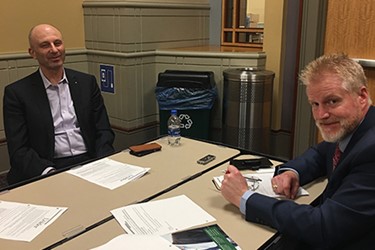Pfizer's Head Of R&D On The Importance Of Being Hyper Focused

By Rob Wright, Chief Editor, Life Science Leader
Follow Me On Twitter @RfwrightLSL

When Mikael Dolsten, M.D., Ph.D., joined Pfizer, it was via the 2009 Wyeth acquisition. Since then, the chief scientific officer and president, worldwide research, development and medical (WRDM) at Pfizer has been tasked with revamping the company’s R&D engine to make it more focused and innovative. But think about this. During the R&D reorg of moving from 14 therapeutic and research categories down to five, Dolsten was part of a mega merger integration (i.e., Wyeth into Pfizer), two missed mega merger attempts (i.e., 2014 attempt of Pfizer acquiring AstraZeneca, 2016 attempt of corporate inversion with Allergan), all under four different CEOs — Bernard Poussot (CEO of Wyeth when acquired), Jeff Kindler (2006 – 2010), Ian Read (2010 – 2019), and Albert Bourla (2019 - present). The subject of an upcoming feature in Life Science Leader’s September 2019 issue, I asked Dolsten where he got his ability to hyper focus. “I grew up as a physician scientist. “As such, I am trying to make a difference for patients, not just for tomorrow, but for the rest of their lives, which can be hard to do if you are spreading yourself too thin.” Similarly, discovering and developing breakthrough medicines usually happens only when having have better insight and understanding of patients and their drugs as compared to anyone else. That’s why the company decided to whittle its R&D therapeutic categories down to five (inflammation and immunology, internal medicine, oncology, rare diseases, and vaccines) and focus on just three aspects of each. “When you spread yourself too thin, it’s easy to be a participant, but hard to be a leader,” Dolsten shares. “To be a pioneer for breakthrough drugs, you need to own the knowledge, the science, and the technology, but you also must be highly focused.”
